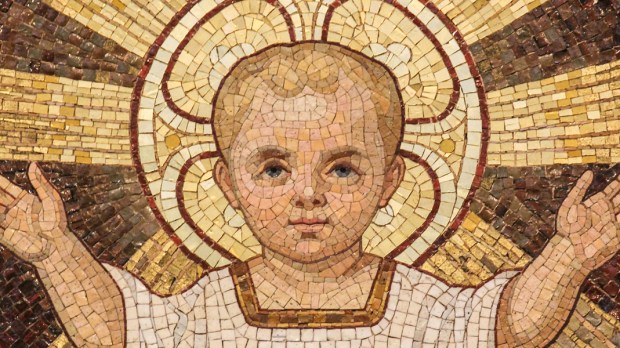Each one of us—adults and kids alike—has a favorite image or memory of Christmas. Perhaps yours is a song or holiday movie (Love Actually, It’s a Wonderful Life, and The Christmas Story seem to top the lists of most people I know).
For some, myself included, favorite Christmas memories have more to do with religious and family celebrations. I often think of attending Midnight Mass with my grandparents and, after returning to their home early Christmas morning, placing the figure of the Christ Child in the manger and exchanging a gift before sleepily heading to bed.
Christmas can be a difficult celebration. High expectations from family members, friends, and ourselves can cause stress. Those battling addictions often find the holidays especially challenging, while those who are mourning the passing of a loved one can feel that absence in poignant ways.
Our Catholic tradition is very clear that our celebration of Christmas isn’t limited to just December 25. Our celebrations of the coming of Christ only begin on the evening of December 24 and they extend through the first weeks of January. So how do we balance all the pre-Christmas cheer with the deeper truths at the heart of Christmas?
+ Remember that Christmas is more than a birthday party.
I’ve often heard it said—including in my own family—that “Christmas is for children.” And if Christmas were only Jesus’ “birthday,” then I think that could be true. When we really enter into the mysteries of Christmas, we quickly realize that Christmas is more than just a birthday party.
Our Catholic tradition celebrates three ways that Christ comes to us at Christmas:
In History:We all know the stories from the Gospels that tell of that first Christmas two millennia ago. We celebrate the Incarnation—Christ coming among us in history—when we recall the world-changing event of the birth of Jesus. In Jesus, God became a human being, born of Mary, to fulfill promises made through the prophets.
In Mystery: At Christmas, we also celebrate how Christ mysteriously comes to us today—in the sacraments (especially the Eucharist), in the words of Scripture, and in our encounters with one another. The Incarnation wasn’t a one-time event.
In Majesty: Christmas also reminds us that what happened that night in Bethlehem was only a beginning. Our faith tells us that, while Christ is always with us, a time will come when we will be fully united with God. So, as we praise God for the gift of Emmanuel at Christmas, we also look to the day when Christ will come again. Life and death have been transformed by what began in Bethlehem. Christmas is ultimately a celebration of what is possible.
+ The wise still seek him.
The great celebration of Epiphany (celebrated on January 7 in 2018) is the day when we recall not only the visit of the wise men, with their gifts of gold, frankincense, and myrrh, but when we also celebrate the fact that this Holy Child has been born for all peoples. The wise men represent peoples of other beliefs and places who found their way to Christ.
Like the rest of the Christmas season, Epiphany isn’t only a day when we look back at past events. It is also a time of promise: the light of the star that guided those travelers is a symbol of how God’s grace still guides seekers today. On Epiphany, we can pray for the gift of faith for those who might have lost their way or who do not know God’s love.
“Epiphany” means “manifestation” and so, the coming of the wise men is tied to two other important Epiphany events: the Baptism of Jesus (celebrated on January 8 in 2018) by Saint John the Baptist when the voice of the Father declared, “This is my beloved Son, with whom I am well pleased” (Matthew 3:13-17) and Jesus’ first miracle at the wedding at Cana, when he revealed his divine power (see John 2:1-12). And so, this is also a wonderful opportunity for us to ask ourselves what we believe about this Jesus, whose coming we celebrate.
For people of faith, Christmas is a rich season that deserves to be celebrated as fully as possible. The truths that are at the heart of this holy time are fundamental if we really want to live out our faith in dynamic ways. This is also supported by the other special days we celebrate during this season, including the Feast of the Holy Family and the Solemnity of Mary, Mother of God on January 1. Look around for all the ways Christ is present among us and how you have been blessed. He is still being born in each of us today and each of us, like Mary, is called to take the presence of Christ to all the world.
For those of us who might be in pain or grieving, these blessed days are also a reminder that the Child of Bethlehem grew into the One who offered forgiveness, healing, and wholeness, and who promised that those who mourn would be comforted (see Matthew 5:4).
In the end, Christmas Day marks the beginning of a season of blessings when we can sing out “Joy to the world! The Lord is come” because we know it’s true and we are changed forever!

